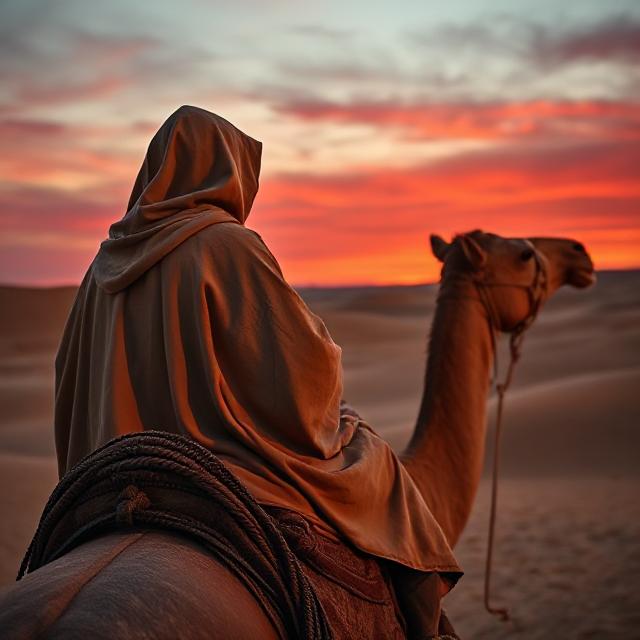Their greed proves stronger than their thirst for blood. Their eyes fall on the coins you tossed, just as an executioner’s axe falls upon a condemned man’s neck. It buys you a moment — just enough time to make your escape.
You turn around and flee that godless place. You leave it behind the way your friends left you—like casting off dead weight in the middle of a long, unforgiving journey.
If your steadfastness pays off you’ll arrive in the city of Dahranjia before sunset and be one step closer to your final destination. You give for lost all the wealth your friends may have taken from you. You let bygones be bygones. That past—your material past—is behind you now. You’re never returning to that life, so perhaps they did you a favor by stripping you of the things that once bound you to it.
Yes, they betrayed you. But in truth, you would have given them everything anyway—you just didn’t have the mind to do it back then. And so, retroactively, you gift it all to them. You allow them, in your heart, to divide among themselves everything that once belonged to you.
Your muscles are killing you. You can’t go on without rest any longer. You don’t know the desert—and, as with all things unknown, you fear it.

The sky begins to turn orange, and all you see around you is sand. Still, you refuse to despair. It’s not in your nature. Your have faith in your good fortune; you know it must eventually rise to meet your courage.
And so it does. You spot what appears to be a mirage shimmering ahead—but you’re not deceived. It isn’t a mirage, but a real oasis. Nestled within it are several small tents. You approach one and find an old man seated beside it, calmly sipping tea. He looks at you reassuringly, and you greet him. Your strength abandons you, and at any moment, you feel you might collapse onto the sand from sheer exhaustion. Fortunately, he has a spare tent where you can spend the night for free. You thank him immensely, but don’t bother with further formalities. You step inside and let yourself fall onto the mat on the floor.
You wake up inside the tent, revitalized. Then, you step outside the tent into the soft morning light, where palm trees sway in the gentle breeze. There sits your host—exactly as you found him when you arrived, as if he hadn’t moved an inch. He must be somewhere between eighty and two hundred years old. Perhaps the sand preserves people from aging. He greets you with warmth, but continues sipping on his tea, indifferent to your presence.
You don’t wish to prolong the moment either. There’s a mission ahead—whether decreed by life or nature, it doesn’t matter. You must ride on. He senses this and watches you with quiet expectation.
‘Now that you’ve had your fill of rest, it is high time you moved on,’ you say, as that frail excuse of a man looks at you with quiet understanding. You ask him whether he has some provisions he can spare for the road, and he nods in agreement. He has plenty of dry goods well-suited for the journey. In return, he asks only one thing: that you fulfill your destiny—whatever you believe it to be.
You try to explain your plan of having no plan—your decision to never decide again. In the spur of the moment, you begin sharing your theories on life, but he cuts you short. He doesn’t want to hear it. He’s here to help, not to engage in dialectics.
He urges you to keep moving—anywhere or even nowhere, so long as you avoid stagnation. “Like in chess,” he says, “we’re forced to make a move, whether we like it or not. Refusing to move is forfeiting the game.”
You understand, and feel readier than ever to continue. You ask him which direction leads to Zalenica. He isn’t certain but recommends a trustworthy guide.

One Comment